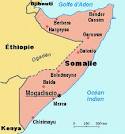
9 October 2016
Leaders of the Federation of Somali Trade Unions (FESTU) and its 11 affiliated trade unions met this morning in Mogadishu over the indirect election process of Somalia and expressed serious disappointment over the submission of candidates for members of Upper House, also called Senate.
Regional States of Puntland, Galmudug and Jubaland had submitted their candidates to State-Level Electoral Implementation Team (SEIT). Clearly the lists of candidates from these three States demonstrate lack of respect of women quota (30%) as repeatedly agreed by the National Leaders Forum (NLF). Even most of the women candidates are set to be defeated because they are competing with influential male politicians and male personalities with plentiful resources to win the senatorial seat.
FESTU and its affiliated union commend the leadership of South West State of Somalia for striving to respect the 30% women quota in the upper house. This demonstrates that this quota is achievable so long as it has political will to do so.
Trade unions are also very apprehensive about human rights record of some candidates who are vying for seats in the Upper House. Already names of persons accused of committing serious human rights abuses either as former warlords or in their association with Al-Shabaab are among names submitted to SEIT and to Federal Indirect Election Implementation Team (FIEIT).
The victims of human rights abuses will be denied their right to justice and an effective remedy, should these persons who are implicated in human rights violations are allowed to be candidates or elected to Upper House. Such suspected perpetrators of human rights abuses want to be in Upper House in order to enjoy immunity from prosecution by virtue of their membership of the legislative body.
Trade unions are also observing a trend were minority groups are being marginalized from Upper House. This move goes against the decisions of NLF. Disregarding of representation of certain communities in Upper House will not make election process inclusive and participatory for all Somalis.
“We see a cloud of smoke created to disguise real intentions of politicians who are impatient to effectively deny meaningful women representation in Upper House. We call on Regional States to rectify this shameful situation and ensure minimum 30% women representation in Upper House. FIEIT must swiftly intervene to resolve the marginalization of women,” said Omar Faruk Osman, FESTU General Secretary.
Trade unions are calling on FEIT and SEIT to conduct proper vetting process to ensure that persons who are implicated in serious human rights violations do not make the list that electoral college will be voting for. By allowing persons implicated in human rights abuses to be candidates, victims of their abuses will have little hope of justice and will destroy integrity of elections.
